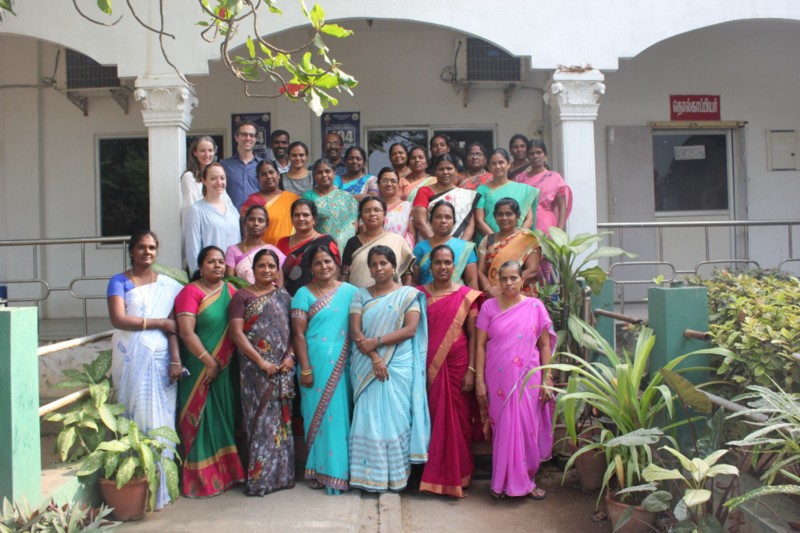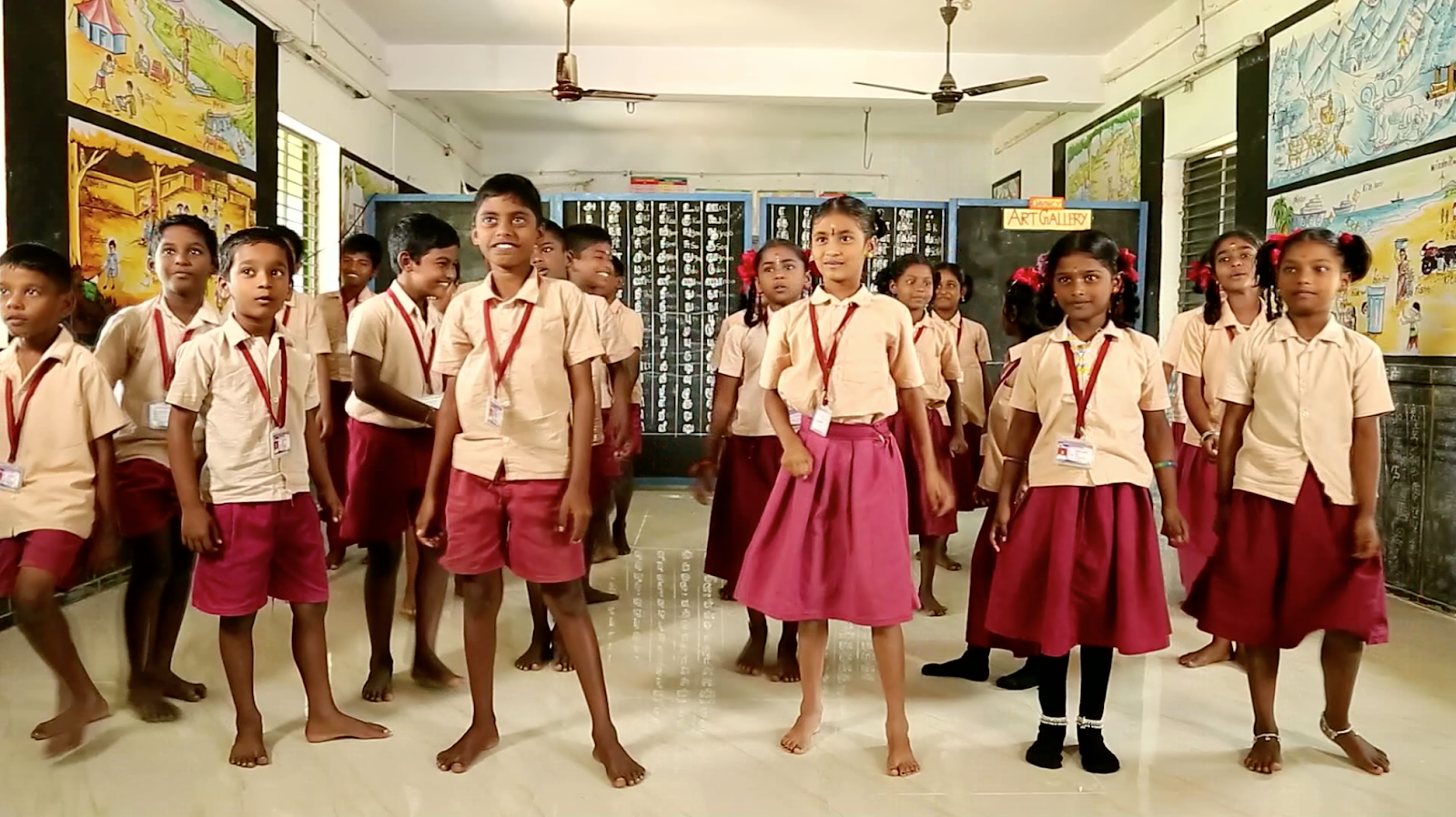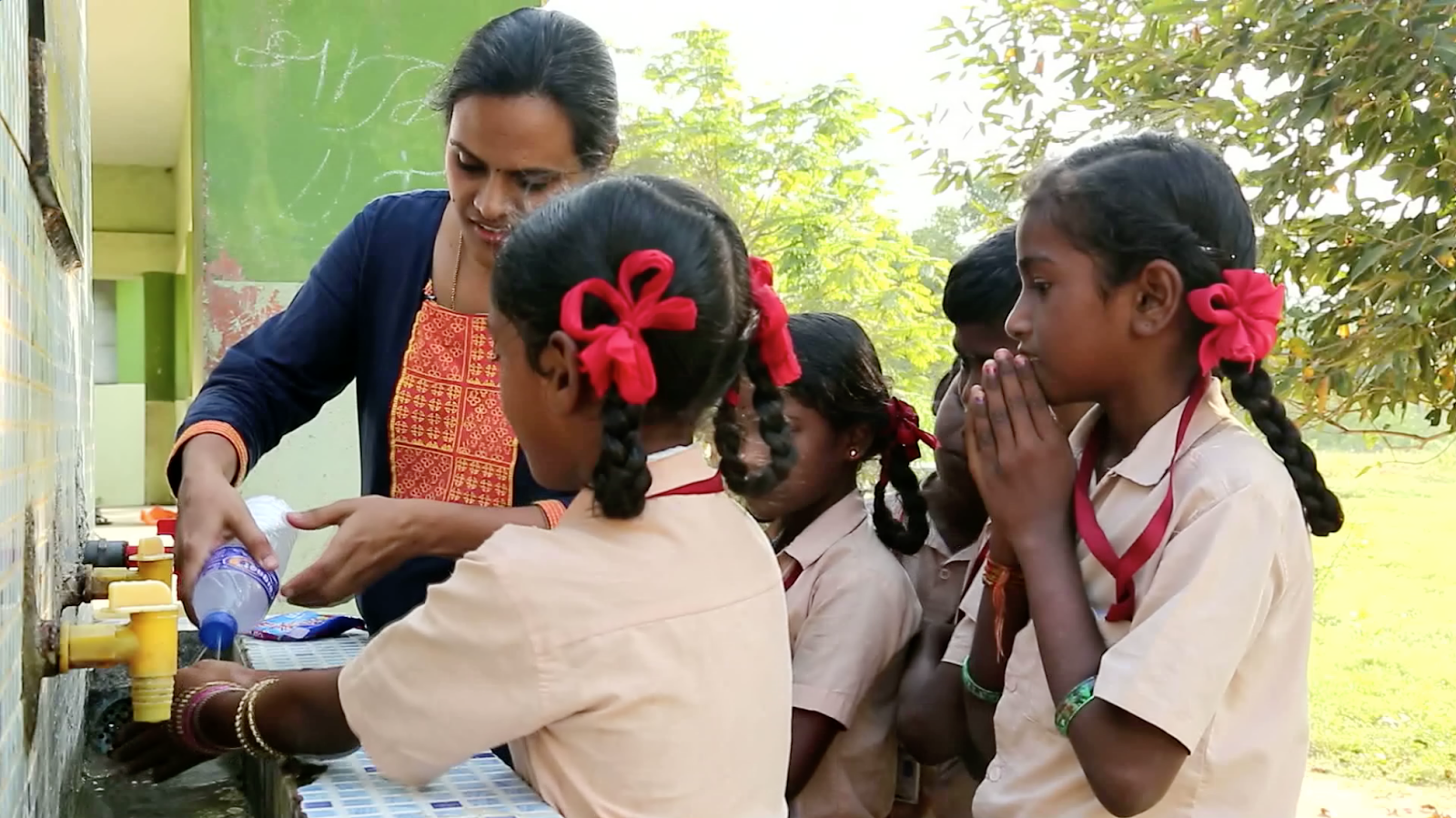Engagement Lab Creates Game-Based Curriculum for Sanitation Project in India
Tuesday, February 6, 2018

As of 2015, 20% of all global deaths from diarrhea or pneumonia in children under five happen in India.¹ In Tamil Nadu, India, about 47% of people practice open defecation, with rates as high as 80% in some districts of the state.² Systematic reviews also estimate that only 15% of people in India regularly practice handwashing with soap.³ Access to improved sanitation facilities (i.e. toilet use) and handwashing with soap are both interventions that are proven to greatly reduce diarrhea and pneumonia.

To address this, the Engagement Lab developed** Hygiene with Chhota Bheem**, a game-based curriculum that encourages handwashing with soap and toilet use among children ages 7–11 living in Tamil Nadu, India. The curriculum was developed in partnership with Green Gold Animation, the Indian Red Cross Society, the Mary Anne Charity Trust, and and a Working Group of NGOs and civil society groups dedicated to improving sanitation and hygiene in Tamil Nadu. It was playtested over several months with primary school children in Tamil Nadu.
vimeo:
 See footage of Hygiene with Chhota Bheem game play.
See footage of Hygiene with Chhota Bheem game play.
Hygiene with Chhota Bheem shows children videos featuring Bheem, the protagonist of a popular Indian animated children’s TV series. Following Bheem’s lead, children work to defeat an evil Germ Wizard that loves to spread germs and filth in the community. Children engage in interactive classroom activities that are based on the stories, and they play a digital mobile game that reinforces learning goals. At the end of each lesson, teachers give children a challenge to complete before the next week to defeat the Germ Wizard, such as making soapy water bottles and teaching friends about what they learned.
From January 22nd–26th, Eric Gordon, Executive Director of the Engagement Lab and Professor at Emerson College, and Mary Beth Dawson, Project Manager at the Engagement Lab, visited Tamil Nadu to train teachers to implement the hygiene and sanitation curriculum. The curriculum is being tested with nearly 3,000 primary school children in a 30-school pilot study in Tiruvallur district, Tamil Nadu.

Teachers will implement Hygiene with Chhota Bheem for four weeks in February 2018. The Mary Anne Charity Trust (MACT) has partnered with the Engagement Lab to conduct surveys and observations of toilets and handwashing stations at participating schools at baseline and two weeks after the curriculum has ended. “Evaluating Hygiene with Chhota Bheem in this pilot study will help us understand if the curriculum is effective in generating learning and behavior change among children,” said Dawson.
According to Professor Gordon, “Hygiene with Chhota Bheem combines digital game play with immersion in a fantasy story world where kids get to play the hero coming to the aid of the public’s health. Our study seeks to test the effectiveness of games and storytelling not only on kids’ knowledge of hygiene and sanitation, but on their ability to advocate for change in their communities.”
Learn more about the project here.
> 1. Nguyen, Thuy-Linh et al. “The 2015 Pneumonia and Progress Report.” International Vaccine Access Center (IVAC) at the Johns Hopkins Bloomberg School of Public Health, 12 Nov. 2015. Web .
> 2. Gopalakrishnan, S. (2011). Housing, Household Amenities, and Assets: Key Results from Census 2011. Retrieved from www.census.tn.nic.in
> 3. Freeman, M., Stocks, M., Cumming, O., Jeandron, A., Higgins, J. P. T., Wolf, J., … Curtis, V. (2014). Hygiene and health: systematic review of handwashing practices worldwide and update of health effects. Tropical Medicine and International Health, 19(8), 906–916. https://doi.org/doi:10.1111/tmi.12339